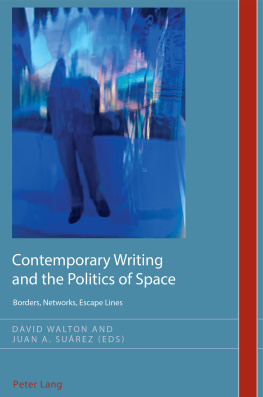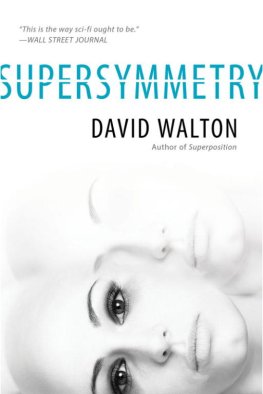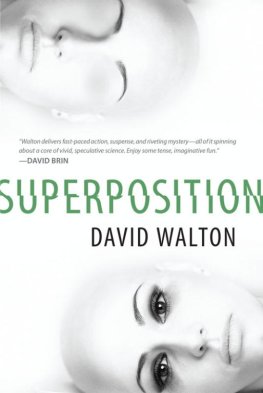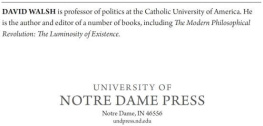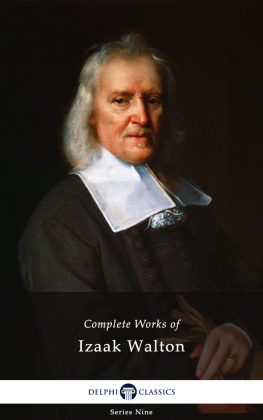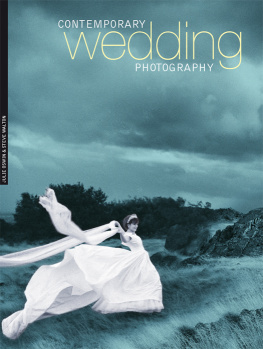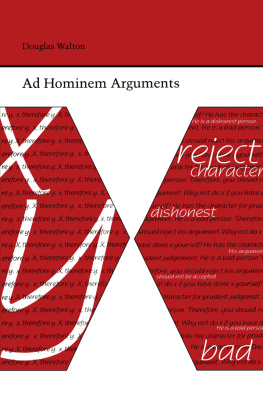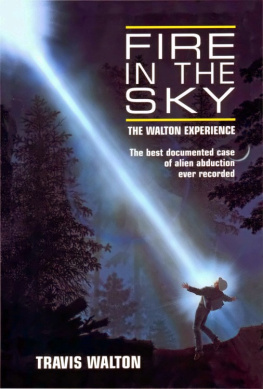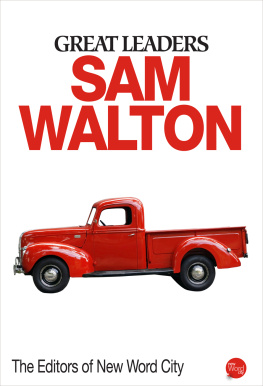Walton David - Contemporary Writing and the Politics of Space
Here you can read online Walton David - Contemporary Writing and the Politics of Space full text of the book (entire story) in english for free. Download pdf and epub, get meaning, cover and reviews about this ebook. year: 2017, publisher: Peter Lang AG, genre: Politics. Description of the work, (preface) as well as reviews are available. Best literature library LitArk.com created for fans of good reading and offers a wide selection of genres:
Romance novel
Science fiction
Adventure
Detective
Science
History
Home and family
Prose
Art
Politics
Computer
Non-fiction
Religion
Business
Children
Humor
Choose a favorite category and find really read worthwhile books. Enjoy immersion in the world of imagination, feel the emotions of the characters or learn something new for yourself, make an fascinating discovery.
- Book:Contemporary Writing and the Politics of Space
- Author:
- Publisher:Peter Lang AG
- Genre:
- Year:2017
- Rating:5 / 5
- Favourites:Add to favourites
- Your mark:
- 100
- 1
- 2
- 3
- 4
- 5
Contemporary Writing and the Politics of Space: summary, description and annotation
We offer to read an annotation, description, summary or preface (depends on what the author of the book "Contemporary Writing and the Politics of Space" wrote himself). If you haven't found the necessary information about the book — write in the comments, we will try to find it.
Contemporary Writing and the Politics of Space — read online for free the complete book (whole text) full work
Below is the text of the book, divided by pages. System saving the place of the last page read, allows you to conveniently read the book "Contemporary Writing and the Politics of Space" online for free, without having to search again every time where you left off. Put a bookmark, and you can go to the page where you finished reading at any time.
Font size:
Interval:
Bookmark:

CULTURAL HISTORY AND LITERARY IMAGINATION
EDITED BY CHRISTIAN J. EMDEN & DAVID MIDGLEY
VOL. 26
EDITORIAL BOARD
RODRIGO CACHO, UNIVERSITY OF CAMBRIDGE
SARAH COLVIN, UNIVERSITY OF CAMBRIDGE
KENNETH LOISELLE, TRINITY UNIVERSITY
HEATHER WEBB, UNIVERSITY OF CAMBRIDGE

PETER LANG
Oxford Bern Berlin Bruxelles Frankfurt am Main New York Wien
Contemporary Writing and the Politics of Space
Borders, Networks, Escape Lines
David Walton and Juan A. Surez (eds)

PETER LANG
Oxford Bern Berlin Bruxelles Frankfurt am Main New York Wien
Bibliographic information published by Die Deutsche Nationalbibliothek
Die Deutsche Nationalbibliothek lists this publication in the Deutsche Nationalbibliografie; detailed bibliographic data is available on the Internet at http://dnb.d-nb.de.
A catalogue record for this book is available from the British Library.
Library of Congress Control Number: 2017941145
Cover image: David Walton, Angel of History (Rebooted) (2016).
Cover design: Peter Lang Ltd.
ISSN 1660-6205
ISBN 978-3-0343-2205-8 (print) ISBN 978-1-78707-632-7 (ePDF)
ISBN 978-1-78707-633-4 (ePub) ISBN 978-1-78707-634-1 (mobi)
Peter Lang AG, International Academic Publishers, Bern 2017
Wabernstrasse 40, CH-3007 Bern, Switzerland
info@peterlang.com, www.peterlang.com, www.peterlang.net
All rights reserved.
All parts of this publication are protected by copyright.
Any utilisation outside the strict limits of the copyright law, without the permission of the publisher, is forbidden and liable to prosecution.
This applies in particular to reproductions, translations, microfilming, and storage and processing in electronic retrieval systems.
This publication has been peer reviewed.
viii | ix
This volume has been long in the making and we have incurred, during its incubation and preparation, some debts. Our first thanks go to our patient authors; they have graciously endured the postponements imposed by our chronically busy schedules and have punctually responded to our queries and requests for revision. In the ungainly mix of rushing and waiting scuttling to meet deadlines; waiting for editorial decisions and feedback that inevitably characterize the rhythms of academic writing and publishing our authors if we can be proprietary here have been nothing but jolly fellow travellers throughout.
Some of the essays included here were first presented at the 16th International Conference of the Iberian Association of Cultural Studies (IBACS) held at the University of Murcia, 46 October 2013. We remain grateful to conference attendees, the personnel and administrators of the Facultad de Letras who contributed to the running of the event, to the many student volunteers who staffed the venue, to the intellectual stimulation generated by plenary speakers (George McKay, Jean Rendell, John Storey, and Chris Weedon), and generally to all presenters. We also owe thanks to the Fundacin Sneca for a Jimnez de la Espada grant that helped to defray conference costs. We would also like to thank those authors who were not part of the conference but who agreed to write specially commissioned chapters for us.
At Peter Lang we want to thank the anonymous reviewers who provided useful feedback, and Laurel Plapp, for being a good-humoured, prompt, efficient, and attentive editor.
The research included in the volume was partly underwritten by Research Project 15397/PHCS/10, of Fundacin Sneca-Agencia Regional ix | x para la Ciencia y la Tecnologa, CARM, and by Research Project FFI2014-54391-P, Periferias de lo queer: Transnacionalidades, Micropolticas, of the Ministerio de Economa y Competitividad-Gobierno de Espaa. We thank both institutions for their support.
x | 1
There is a moment in Platos Republic (2012: 237) when Glaucon refers to those who look up into space and says that everyone can see that astronomy induces the soul to look upwards in such a way that the mind is led away from the known world to another. Plato, thinking of perfect truths above mere seeing and observing, disagrees on the grounds that those who elevate astronomy into philosophy actually make the viewer look down, not up. Contrary to the Platonic enterprise, contemporary cultural and literary criticism tends to repeat this gesture of looking down at the ground in order to extract from the exploration of real and imagined spaces not an intuition of their ideal form but a materialist understanding of their effect on daily life, social relations, and cultural representations. No longer regarded as a mere backdrop, neutral container, blank expanse, or fundamental perceptual category (as Kant influentially proposed), space has come to be seen in contemporary philosophy, literary, and critical theory as something produced, to cite Henri Lefebvres foundational term: that is, conquered, governed, traversed, mapped, and structured by such factors as class, power differentials, race and ethnicity, gender, sexuality, and different kinds of national and cultural identity. While dating the emergence of theoretical paradigms is always a risky affair, it is safe to state that from the early 1970s onward, disciplines such as philosophy, history, geography, sociology, cultural studies, and anthropology have managed to reformulate space from an abstract, neutral, or transparent category to a fully socialized domain, shaped by concrete and vastly diverging cultural, political, and aesthetic interests and agendas (Lefebvre 1991: 2834).
It is customary to describe literary studies as a latecomer to this new understanding of space. Other volumes like the present one frequently start their discussions of the spatial turn in literature with references to the influence of Michel Foucault, Michel de Certeau, and Henri Lefebvre 1 | 2 on literary criticism, an influence that may be dated to the late 1980s and early 1990s. And some critics have pinned the tardiness of literary criticism to join the age of space studies on Gottfried Ephraim Lessing (Buchholz and Jahn 2005: 551). Lessing characterized literature as a temporal, rather than spatial art: an art of actions evolving diachronically, reported in succession, and perceived gradually, rather than of bodies (Lessings term for images) to be instantly apprehended like a painting or a sculpture (Lessing 1971). For philosophers such as Michel Foucault, the primacy of time in literary analysis was much more than an after-effect of Lessings theories. It was, he claimed, the product of a general denigration of space in Western culture, which regarded space as static and inert, while it favoured time as the axis of transformation, growth, and dialectics (1980: 70). However, even though space was traditionally relegated in favour of time in philosophy and literary studies, it has never been completely erased from the latter. At least some gestures of spatial awareness have always been embedded in definitions of the literary; remember, for example, Aristotles postulation of a unity of place in drama and the voluminous discussions on the meaning and applicability of this precept that punctuate the history of Western literary theory and criticism.
Without going as far back as Aristotle, numerous critical milestones in the last century have predated and prepared the recent spurt of work on the spatiality of literature. A brief sample of the most influential would include Henry Jamess reliance on spatial metaphors (scenes, the house of fiction) in his pioneering reflections on the novel (1984 [1934]); Walter Benjamins analysis of the influence of urban experience on Charles Baudelaires poetry (1969); Joseph Franks characterization of the spatial form of modern literature (1963: 361); Maurice Blanchots dissection of literature as a space of radical exteriority where the subject and ordinary language are undone (1982); Gaston Bachelards phenomenological exploration of lived space as a repository of memory and affect (1964); or Mikhail Bakhtins concept of the chronotope the spatio-temporal tropes of narrative form (1981: 84257).
Font size:
Interval:
Bookmark:
Similar books «Contemporary Writing and the Politics of Space»
Look at similar books to Contemporary Writing and the Politics of Space. We have selected literature similar in name and meaning in the hope of providing readers with more options to find new, interesting, not yet read works.
Discussion, reviews of the book Contemporary Writing and the Politics of Space and just readers' own opinions. Leave your comments, write what you think about the work, its meaning or the main characters. Specify what exactly you liked and what you didn't like, and why you think so.

